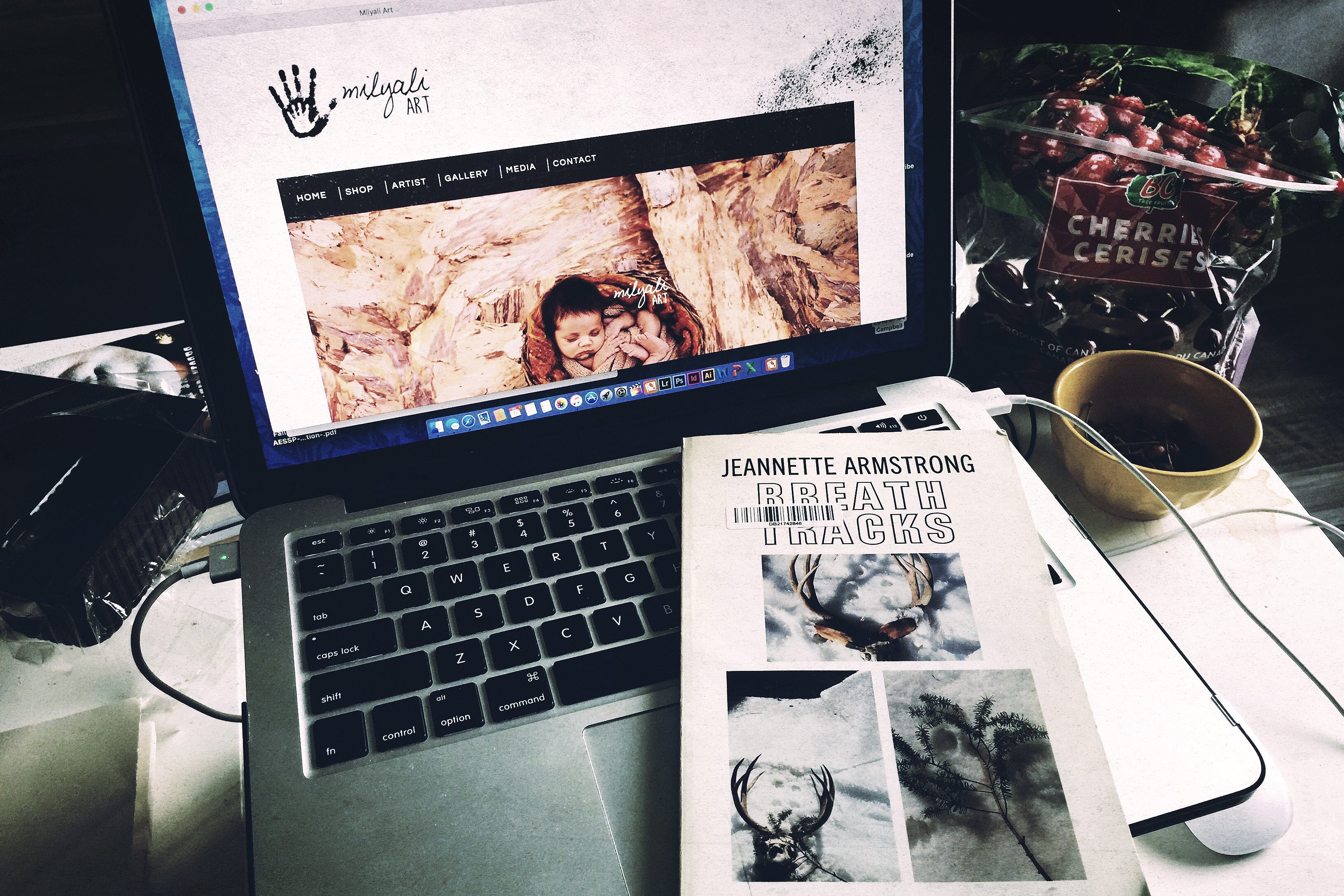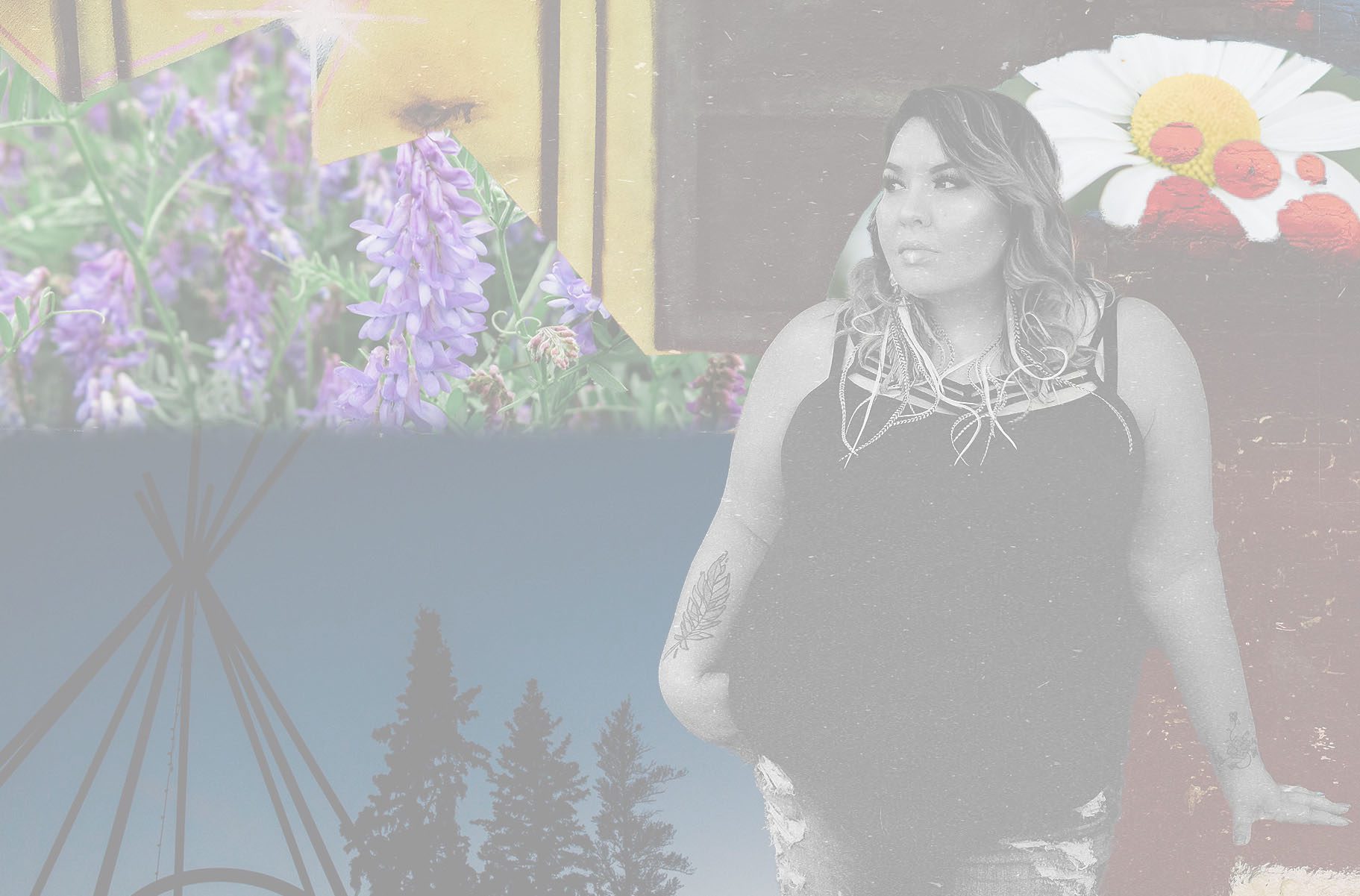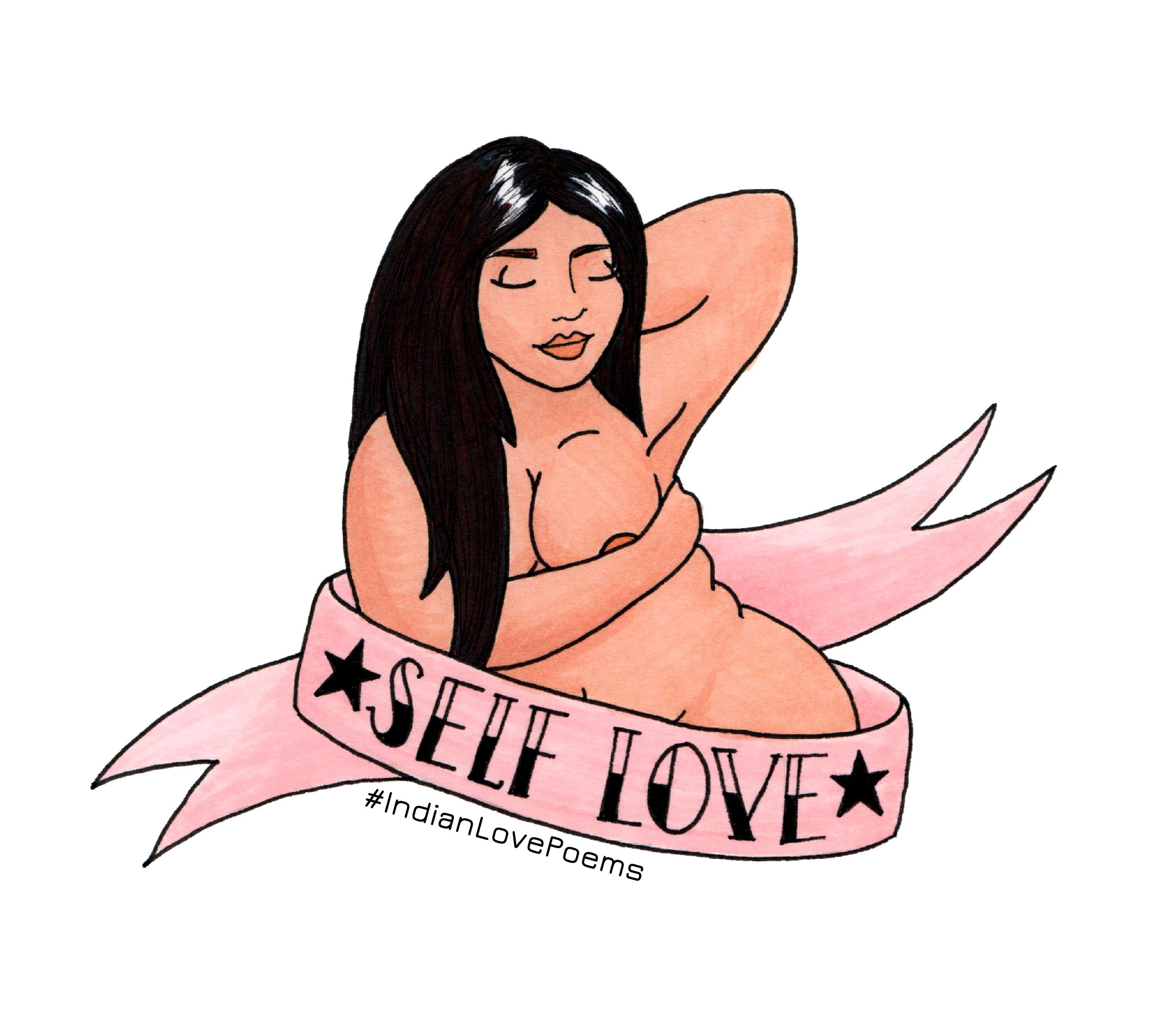
I really liked this collection. I may be biased – having met Jeannette Armstrong previously and totally in awe of her personality and wisdom, I really don’t have a clear filter with her work, but hey lyrical flow is powerful, and the ideas she raise – identity and land, blood and responsibility, love and war. She makes us delve into the little moments and compare them to the big ideas, finding a personal responsibility or awareness beyond our own lives. And that’s good.
Blood – pg. 16
This poem has traditional characteristics of poetry – using white space as line breaks, carefully selected words evoking image and story. Obviously, ha. This poem tells the relationship of land and the People as it pertains to the speaker, a woman. She says that the blood of her people is in the dust, as they are “pulsing walking earth” and she carries that inside her. And while they may seem fragile, her blood “shakes earth and dust” before “settling / quietly back into soil.”
I like the fact that our blood runs in the land, and that we are connected to it beyond merely existing upon it. I like the connection between breathing and serving with earth. I like the use of white pace to show breath racks throughout the poem.
Obviously, this poem is pro-land identity, but it doesn’t say you have to stay on the land to remain part of it, so that’s interesting. It just states that she belongs. I like that.
Dark Forests – p. 35
Another love story, but deeper then that. The two people met at Seattle, and they “danced the blanket dance / after the drums were quiet.” He was “from the owl clan” and she “was seventeen.” They “smoked a joint” and laughed while bird watching on Centre Island. He told her about his son, and that he would never know “his grandfather was owl chief.” They walked to buffalo paddocks, and talked about Elder gatherings. He wore a “red hairband [that] showed allegiance / to Aim / to Wounded Knee.” They watched dancers, and he went to speak to masters who breathed his name, “owl man.” She has since been uneasy since they found his body, laid out in “the first soft crow flakes” and wearing his best, with “your last master gratified.” She remembers that “in th night / owls call to each other.”
A beginning, middle, and quick end. Left with questions and dark realizations. Knowledge of war and government decreed terrorism, and the sharp contrast against hopeful first love. Remembering old warnings about death, owls, and change that can’t be stopped. This is poem of many layers, and it’s hidden within a seemingly straightforward tale of young love. Clever.
Ritual – pg. 75
This is hauntingly sad yet beautiful. The speaker is visiting a gravesite, “your earth mound / so quiet / so distant.” The speaker lays down, “curved my limbs around your earth skin.” The moss curves up and “grew thicker / over my belly / my sons / into me” and devours her, sinking her down into the ground, where black fishes move like ghosts. She moves until she is beside him, and “your bones / were so white there in the dark.” She wraps them in brown skin and ties her blood with his. She inhales him. Then she rises up and “I carried home / inside me / your bones” which are dry sticks that poke through her skin. She then piles them into the fireplace, as she “will need / some warmth / when winter comes.”
I like how this both seems so dark and morbid as well as a mental and emotional release of sorrow. The realization that the dead never really leave, as we are a part of them, and how we interact with grief – sometimes calmly, sometimes with absolute insanity.
Buy the book: Breath Tracks – Jeannette Armstrong


